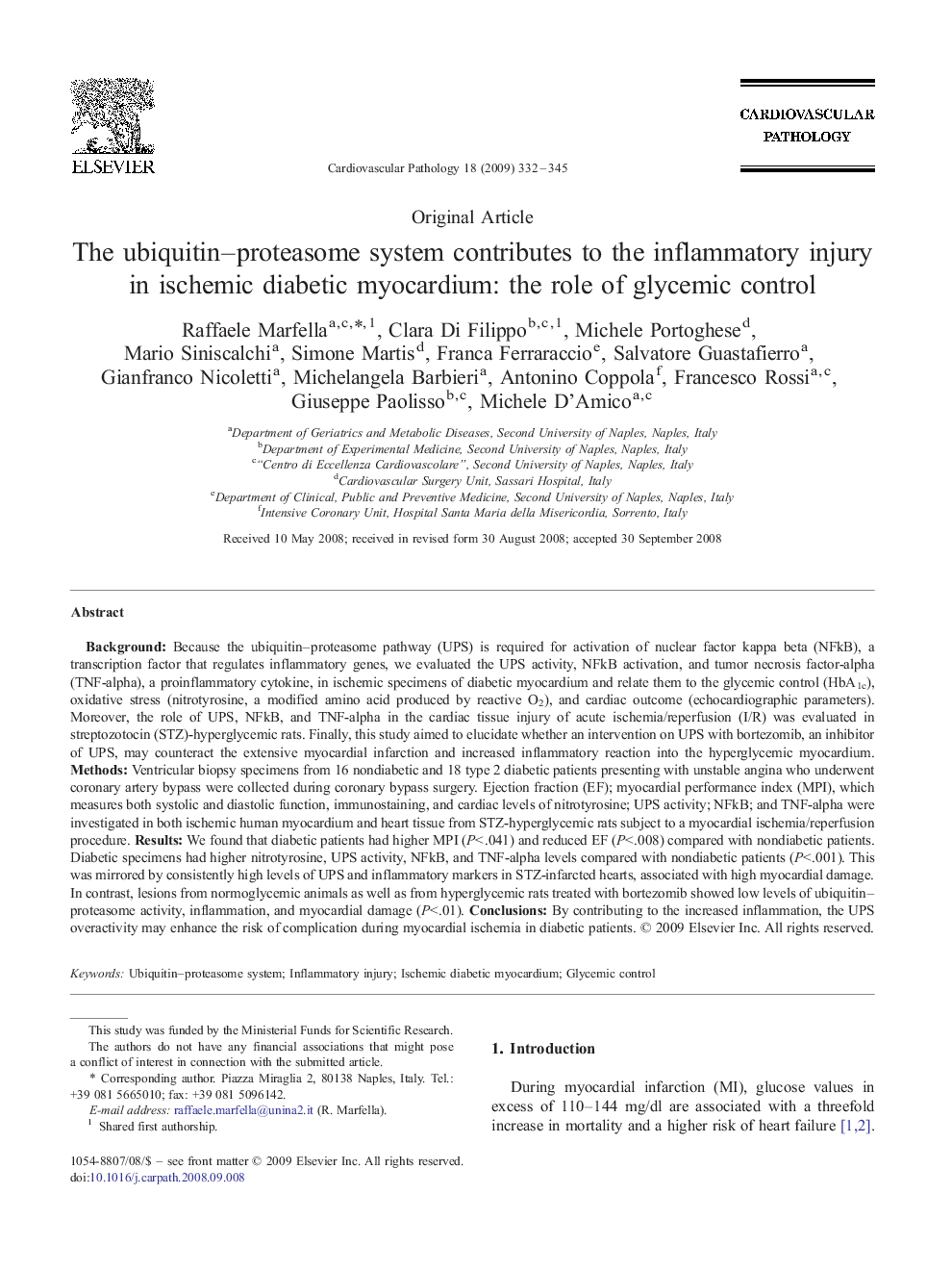| Article ID | Journal | Published Year | Pages | File Type |
|---|---|---|---|---|
| 2899260 | Cardiovascular Pathology | 2009 | 14 Pages |
BackgroundBecause the ubiquitin–proteasome pathway (UPS) is required for activation of nuclear factor kappa beta (NFkB), a transcription factor that regulates inflammatory genes, we evaluated the UPS activity, NFkB activation, and tumor necrosis factor-alpha (TNF-alpha), a proinflammatory cytokine, in ischemic specimens of diabetic myocardium and relate them to the glycemic control (HbA1c), oxidative stress (nitrotyrosine, a modified amino acid produced by reactive O2), and cardiac outcome (echocardiographic parameters). Moreover, the role of UPS, NFkB, and TNF-alpha in the cardiac tissue injury of acute ischemia/reperfusion (I/R) was evaluated in streptozotocin (STZ)-hyperglycemic rats. Finally, this study aimed to elucidate whether an intervention on UPS with bortezomib, an inhibitor of UPS, may counteract the extensive myocardial infarction and increased inflammatory reaction into the hyperglycemic myocardium.MethodsVentricular biopsy specimens from 16 nondiabetic and 18 type 2 diabetic patients presenting with unstable angina who underwent coronary artery bypass were collected during coronary bypass surgery. Ejection fraction (EF); myocardial performance index (MPI), which measures both systolic and diastolic function, immunostaining, and cardiac levels of nitrotyrosine; UPS activity; NFkB; and TNF-alpha were investigated in both ischemic human myocardium and heart tissue from STZ-hyperglycemic rats subject to a myocardial ischemia/reperfusion procedure.ResultsWe found that diabetic patients had higher MPI (P<.041) and reduced EF (P<.008) compared with nondiabetic patients. Diabetic specimens had higher nitrotyrosine, UPS activity, NFkB, and TNF-alpha levels compared with nondiabetic patients (P<.001). This was mirrored by consistently high levels of UPS and inflammatory markers in STZ-infarcted hearts, associated with high myocardial damage. In contrast, lesions from normoglycemic animals as well as from hyperglycemic rats treated with bortezomib showed low levels of ubiquitin–proteasome activity, inflammation, and myocardial damage (P<.01).ConclusionsBy contributing to the increased inflammation, the UPS overactivity may enhance the risk of complication during myocardial ischemia in diabetic patients.
